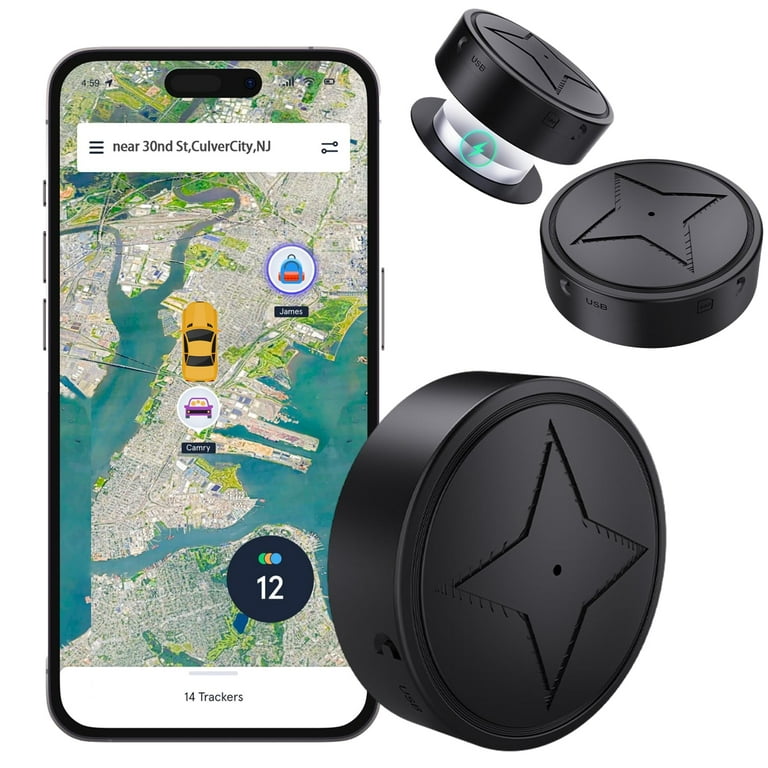Browsing the Future of GPS Tracking: Developments, Obstacles, and Opportunities Ahead
As we stand at the crossroads of societal effects and technical developments, the landscape of GPS tracking is positioned for a transformative journey ahead. The advancement of GPS technology has been rapid, introducing a brand-new period of real-time tracking capacities that guarantee extraordinary degrees of accuracy and performance. With terrific development comes wonderful duty, as information privacy worries impend huge and security difficulties in General practitioner monitoring raising important inquiries about safeguarding delicate information. Amidst these obstacles exist hidden possibilities waiting to be explored, supplying a glimpse into the untapped potential of a sector at the edge of modification.
Evolution of GPS Technology
Created for armed forces functions, GPS innovation has progressed to become a common device in numerous fields, including transportation, logistics, farming, and personal navigation. Early General practitioner systems were characterized by restricted insurance coverage, reduced precision, and bulkier equipment needs.
One secret landmark in the development of GPS modern technology was the advancement of Careful Schedule (SA) in the 1990s, which intentionally broke down the precision of civilian GPS signals. The discontinuation of SA in 2000 considerably boosted GPS precision for noncombatant users. Subsequent innovations, such as the release of added satellite constellations like Galileo and BeiDou, have actually better enhanced GPS protection and precision, making it a vital tool in everyday life. As GPS innovation proceeds to progress, we can anticipate additional renovations in coverage, precision, and effectiveness, opening new opportunities for development and applications across numerous markets.
Real-Time Tracking Advancements
Structure on the innovations in GPS innovation that have reinvented precision and insurance coverage, real-time monitoring has emerged as an essential location of innovation with profound effects across numerous fields. Real-time tracking innovations enable companies and companies to keep an eye on automobiles, assets, and workers instantaneously, offering beneficial insights for decision-making procedures - gps tracking. By leveraging real-time information, firms can improve operational efficiency, improve customer care, and make certain the safety and security and safety of their properties
Among the crucial developments in real-time tracking is the integration of expert system and equipment learning formulas, which allow predictive analytics and anomaly detection. These capabilities allow for positive maintenance scheduling, course optimization, and danger mitigation techniques. Moreover, the evolution of real-time tracking systems has actually caused the advancement of adjustable control panels and mobile applications, encouraging individuals to gain access to important info anytime, anywhere.
Data Privacy Problems

Information privacy issues incorporate different elements, consisting of the storage space, sharing, and retention of area data. Organizations have to carry out durable security measures to safeguard general practitioner monitoring data from cyber hazards and data breaches. Clear plans concerning data collection techniques and the function of tracking are important to develop trust with customers and make certain conformity with data defense regulations.
Safety Difficulties in GPS Tracking
Attending to data privacy issues in GPS monitoring is delicately connected to mitigating the protection tests that occur from potential vulnerabilities in the technology. Among the main protection difficulties in GPS monitoring is the danger of unauthorized access to sensitive place data - gps tracking. Cyberpunks might intercept general practitioner signals, manipulate place info, or also track individuals without their authorization. This not only attacks personal privacy but also positions significant security threats.

An additional protection challenge is the possibility for obstructing or spoofing GPS signals. Applying durable encryption, verification actions, and signal confirmation methods are critical steps in dealing with these protection difficulties in GPS tracking.
Emerging Opportunities in the Sector
The growing field of GPS monitoring modern technology offers a myriad of encouraging possibilities for market development and technology. One vital possibility lies in the development of General practitioner tracking applications past standard industries. GPS tracking can change person care by making it possible for remote monitoring of essential indicators and making certain timely clinical aid.
One more substantial possibility in the GPS tracking industry is the integration of innovative analytics and expert system. By anchor leveraging these modern technologies, companies can acquire useful understandings from GPS data to boost operational performance, enhance decision-making procedures, and deal individualized solutions to consumers. Additionally, the enhancing demand for connected gadgets and IoT options provides a ripe chance for GPS tracking companies to expand their offerings and produce ingenious options that deal with a much more connected globe. By profiting from these emerging possibilities, general practitioner tracking firms can place themselves for sustained growth and success in the vibrant landscape of the industry.
Conclusion
In verdict, the future of GPS monitoring is noted by continual advancement and innovation in modern technology. Real-time monitoring improvements and arising chances present promising leads for the industry. However, information privacy problems and protection difficulties continue to be significant difficulties that need to be attended to. As the sector progresses, browsing these challenges will certainly be vital to ensure the continued growth and success of general practitioner monitoring technology.
With great innovation comes why not try these out fantastic obligation, as data privacy worries impend big and safety challenges in GPS monitoring raise essential inquiries concerning securing delicate info.With the rapid spreading of GPS tracking technology in various industries, resolving information personal privacy concerns has actually ended up being an essential essential for both companies and customers alike. The collection of area data via General practitioner tracking raises substantial privacy problems, as it enables the monitoring of people' motions and behaviors. Companies using GPS monitoring should prioritize securing this information to prevent unauthorized gain access to or abuse that could compromise individuals' privacy civil liberties.
Companies need to execute durable security actions to protect GPS tracking data from cyber dangers and information breaches.